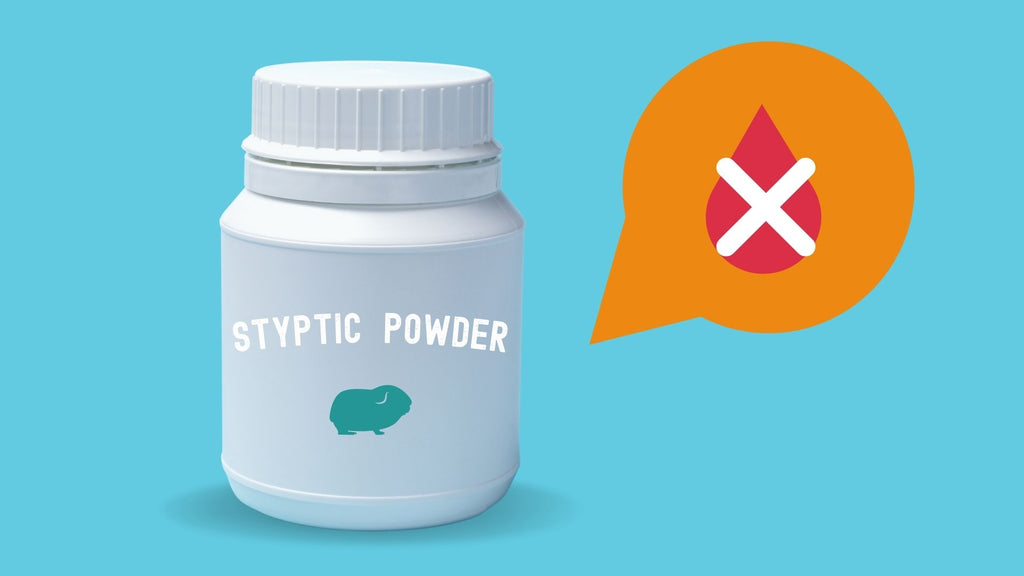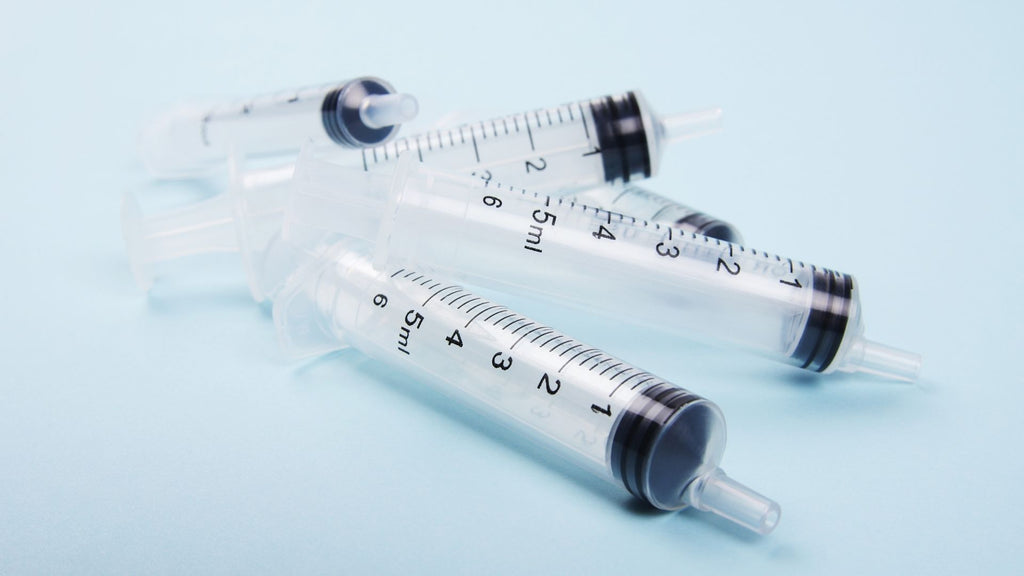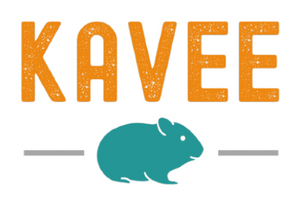We asked an expert : What should be included in an emergency medical kit for guinea pigs?
Guinea pigs are one of the most loving and friendly pets you can own and can be one of the most rewarding experiences.
Despite the fact that we love our animals and will do anything to protect them, unfortunately just like humans, guinea pigs are susceptible to health issues and things going wrong. Here at Kavee, we always believe that preparation is the key to success.
We caught up with Tara, our fellow Guinea pig owner and expert, to talk us through her emergency guinea pig kit and what to include in yours!
Tara proudly runs the Kavee Rescue with her husband Ian, which is the only non-profit rescue dedicated to guinea pigs on the Isle of Wight. To follow Tara’s adventure, be sure to check out the @kaveerescue page on Instagram.
Disclaimer: Please note that this is only advice and you should always consult with your veterinarian.

Did you know you can also use most of these items on rabbits? You can shop for most of these guinea pig and rabbit care essential products at once with our medical kit.
Guinea Pig Emergency Kit Item #1: Fine point plastic tweezers
Tweezers are a wonderful invention with numerous uses within the human realm. However, did you know they can also be used on guinea pigs? Fine point plastic tweezers are an essential part of any first aid kit.
Tara explains “To prevent harm to your guinea pig, make sure they are plastic and not metal. Tweezers can be used to remove foreign bodies from eyes, noses, and paws. You may find that using tweezers is helpful when removing hay around the eyes or foreign objects stuck in your guinea pig's paws. When using tweezers make sure you calm your guinea pig and hold them still.”
Tip: What better way to calm your guinea pig than feeding him a tasty treat or snack?

Guinea Pig Emergency Kit Item #2: Bottle of Saline
Saline is an emergency kit must-have since it can be safely administered to guinea pigs and can be effectively used to treat a wide range of issues or concerns.
In case of dust particles or hay pieces stuck in guinea pig eyes, Tara suggests flushing out the eye with saline.
“When flushing out your guinea pig's eyes, use a clean syringe and gently wipe under the eyelid. Alternatively, cotton buds can be soaked in a saline solution and used to wipe under and around the eye area”
Saline can also be used to clean small wounds. A disagreement between two guinea pigs can sometimes devolve into a fight. Some of the more aggressive fights can lead to guinea pigs becoming wounded. If this happens, a prompt response is necessary! Simply soak a cotton pad in saline solution and wipe gently over the wound, avoiding too much pressure.
All wounds should be treated with care! If they seem infected or injuries are moderate to severe, seek prompt veterinary advice and care.
Tip: Our expertly designed C&C cages with dividers are the perfect solution to separate guinea pigs due to fighting. For more advice on how to stop your guinea pigs from fighting check out our blog.

Guinea Pig Emergency Kit Item #3: Styptic powder
Styptic powder is a fast-acting blood stopper that can be used on small animals and is a handy tool to use especially when trimming guinea pig nails, alongside a pair of suitable nail clippers for guinea pigs.
Tara explains “Trimming guinea pig nails can be a tricky process if your piggie is uncomfortable. When clipping nails, ensure that you are trimming below the quick of the nail.
If you accidentally cut the quick of a guinea pig's nails and it causes blood loss, simply disinfect the nail by wiping with saline solution and tapping some styptic powder onto the nail to stop the bleeding. Apply pressure until the bleeding has stopped.
Although cutting the quick on a guinea pig may seem dangerous it is very harmless and an easy mistake to make with wriggly piggies!”
The styptic powder can also be used on minor wounds if your guinea pig has scratched or caught themselves. Do consult a vet if you are unsure.
For tips and tricks to clipping guinea pig nails check out our article on how to cut guinea pig nails.

Guinea Pig Emergency Kit Item #4: Critical Care Formula (CFC)
Any piggie owner knows that quality care is crucial after any surgery or illness that your guinea pig may be going through. Critical care formula is a fluid replacer used to quickly re-hydrate a sick guinea pig. Just like humans, fluids are vital for a guinea pig's survival and can make all the difference during a spell of illness or recovery from surgery.
Tara warns that constipation in guinea pigs can be fatal so fluids are a must! Fluids are essential to the digestion of nutrients and the lubrication of your guinea pig’s digestive tract.
Critical care formula is also used after operations during the recovery period to provide your guinea pig with everything they need.
Tip: If you have run out of critical care formula, don’t panic! We have 8 emergency liquid food recipes for guinea pigs that you can quickly make at home.

Guinea Pig Emergency Kit Item #5: Herbivore Critical Care
Guinea pigs constantly graze meaning their digestive tract is constantly moving. With guinea pigs pooping up to 100 times a day it is essential they have access to fibrous foods such as hay and fresh vegetables. During an illness or surgery, guinea pigs can be spoon or syringe fed a powdered food mixed with water to keep their gut moving.
Herbivore critical care is used to prevent weight loss during illness or to enhance diets for elderly pigs who may have difficulty eating.
Tara explains: “An alternative to herbivore critical care is fiberplex which can be administered via a syringe to aid sick guinea pig's digestive system. Alternatively, a homemade recipe using crushed guinea pig pellets mixed with water can also be administered, especially in the case of elderly guinea pigs who need extra nutrients.”
Tip: By keeping your sick guinea pig in a quarantine area and providing it with fleece bedding, you can observe their eating habits, prevent infection, and cushion any post-operative wounds.

Guinea Pig Emergency Kit Item #6: Cotton wool balls and cotton buds
Cotton wool balls are incredibly useful and can be used in so many different ways when it comes to maintaining and protecting the health of your guinea pigs. According to Tara, cotton wool pads are a must-have in an emergency kit.
“There is nothing they can't do! I mainly use cotton wool buds to clean hard-to-reach and sensitive areas on my guinea pigs. Cotton buds are effective for gently soothing dry skin on my guinea pigs ears. Cotton pads or cotton balls are also great for soaking in solution and cleaning guinea pig wounds or to apply treatment. I can never have enough!”
Tip: Ensure your guinea pig doesn't eat the cotton wool when using cotton pads.

Guinea Pig Emergency Kit Item #7: Vitamin C
Vitamin C is vital for bodily functions such as the maintenance of skin, joints, and wound healing. Like humans, guinea pigs can't make their own vitamin C, so it must be obtained from their diet. A debate exists within the guinea pig community about whether daily supplementation with extra vitamin C should be administered.
Tara explains: “A well-balanced diet should provide your guinea pig with the recommended daily intake of vitamin C. A quality vitamin C supplement given orally, however, can be helpful to sick, pregnant, or elderly piggies.”
Many pet stores sell water-based vitamin C drops; however, we do not recommend them for a number of reasons. Due to water dilution, the vitamin C concentration in the water would be very low meaning your guinea pig would have to drink huge amounts of water to benefit from the added vitamin C. Drops can also change the taste of the water which could lead your guinea pig to stop drinking, which could be fatal.
Tip: Check out our free guinea pig care sheets with advice on the best foods to feed your guinea pigs for a healthy and balanced diet.

Guinea Pig Emergency Kit Item #8: Various sized syringes
Syringes are a convenient tool when administering liquids to guinea pigs. Having several syringes on hand in your emergency kit is an easy way to administer multiple medications and deliver essential fluids to prevent dehydration.
Larger syringes are useful in hand feeding critical care to your guinea pig in times of illness or post operative care. Similarly, a vet will recommend syringe-feeding antibiotics if you are treating your guinea pig for a respiratory infection. As antibiotics can have a very bitter taste, Tara recommends always having one syringe of water on hand to wash down any antibiotic remaining in your guinea pig's mouth.
Tip: Ensure that any syringe has been thoroughly rinsed before and after use.

Guinea Pig Emergency Kit Item #9: Bandages, gauze, surgical tape
First aid kits typically include bandages, gauze, and surgical tape, which can also be used for guinea pigs.
Tara explains: “I always keep bandages, gauze, and surgical tape in my kit at all times as you never know when they may come in handy! Especially when it comes to boars who may have the odd fight. These kit essentials are also useful if you have a wounded guinea pig or a guinea pig who has recently undergone surgery.”

Guinea Pig Emergency Kit Item #10: Coconut oil
Coconut oil is a highly effective multi-purpose tool for both humans and guinea pigs. Natural coconut oil is a versatile and safe product that can be used to treat skin conditions in guinea pigs.
Tara explains: “Coconut oil is a helpful ingredient that can be applied to soothe dry skin on guinea pigs' ears, feet, or paws. Coconut oil is safe to be ingested by guinea pigs, so do not be alarmed if you see them licking or eating the product!”
Coconut oil can be used to alleviate the symptoms of dry nipples in sows with ovarian cysts. Simply clean the guinea pig's nipples with a cotton ball and gently massage the oil over and around the area.
Tip: Coconut oil can be substituted with baby oil when treating dry nipples in guinea pigs.

Guinea Pig Emergency Kit Item #11: Thermometer
A thermometer is a helpful tool to have in a guinea pig emergency kit in many situations.
Tara says: “A thermometer is an effective tool for reading temperature after your guinea pig has had an operation to check for any signs of infection. Taking your guinea pig's temperature during illness is also advised to check and monitor symptoms."
The MSD Veterinary Manual cites guinea pigs have a normal internal temperature between 39°C to 40°C. If you suspect your guinea pig is suffering from heat stroke or hypothermia, you should take them to your local veterinarian immediately.
If you and your guinea pig are in need of an exotic vet, check out our UK map of cavy savvy vets.

Guinea Pig Emergency Kit Item #12: Scales/digital scales
A weekly weight check is a vital part of maintaining and monitoring your guinea pig's health. When your guinea pig loses weight, it is usually the first indication that something is wrong.
A digital scale is one of the most effective ways to weigh your guinea pig and keep an eye on their general health.
Tara says: "Weighing guinea pigs is such an important factor that many people overlook. As guinea pigs are prey animals they very rarely show symptoms until an illness or issue is in its advanced stages. Gradual weight loss can be difficult to detect just by looking or feeling the guinea pig, so digital scales are essential. Keeping an eye on your piggie's weight after an illness or operation will also show if they are relapsing."
Whenever possible, weigh your guinea pigs at the same time each day. This will help rule out any normal weight fluctuations. As with humans, guinea pigs' weight can vary by as much as 50g each day. By creating a graph and marking out your guinea pig's weight, you can spot any consistent downward trends that could indicate illness or issues with your piggies.
Tip: For more information on weighing guinea pigs check out our helpful blog for everything you need to know about your guinea pig's weight.

Guinea Pig Emergency Kit Item #13: Diary or notebook
A diary or a notebook is a handy tool for any guinea pig owner when doing routine checks. Having health checks on your guinea pig is vital to check for signs of illness and to monitor their health and well-being.
Tara advises: “As guinea pigs are prey animals they usually only show signs when it is too late. A diary is a helpful way to record weekly weight figures and to also record any medications during illness."

Guinea Pig Emergency Kit Item #14: Protective gloves
Having a pair of protective gloves on hand is ideal for everyday use, but they are also beneficial in an emergency kit for your guinea pig.
Tara explains: “I would not be without protective gloves! Hygiene and cleanliness are crucial for the guinea pigs' health and well-being. The gloves are suitable for use when dealing with open wounds or abscesses. By wearing gloves, you can keep the area clean and prevent the spread of germs. Guinea pigs can also suffer from ringworm, which can easily be transmitted to humans, so it is important to wear gloves when treating the issue."
Tip: Wearing gloves while cleaning your C&C cage can improve hygiene.

CONCLUSION
Due to life's unpredictable nature, guinea pig owners should consider keeping a medical emergency kit on hand. Our guinea pig expert, Tara, has provided an excellent checklist of what can be beneficial to keep your guinea pig healthy. It is always advisable to seek professional veterinarian advice if your guinea pig shows any signs of illness or changes in behaviour.
If you're overwhelmed by the number of things you now need to seek out online and in stores, Kavee offers a portable medical kit for guinea pigs that covers everything you need for both daily care and emergencies.

CHECK OUT OUR OTHER USEFUL POSTS:
9 signs your guinea pig loves you
Recommended guinea pig vets in the UK: Cavy savvy vet maps
6 guinea pig cleaning hacks I wish I knew
Top 12 guinea pig noises and sounds explained by experts
20 best ways to bond with your guinea pigs
How to keep guinea pigs in 2021
Kavee wins online business of the year 2021 award
My opinion: do guinea pigs smell?
Grieving the loss of a guinea pig
The ultimate guide to using fleece liners for guinea pigs
Why are guinea pig owners swapping from wood shavings to fleece
6 ways in which C and C cages got better









